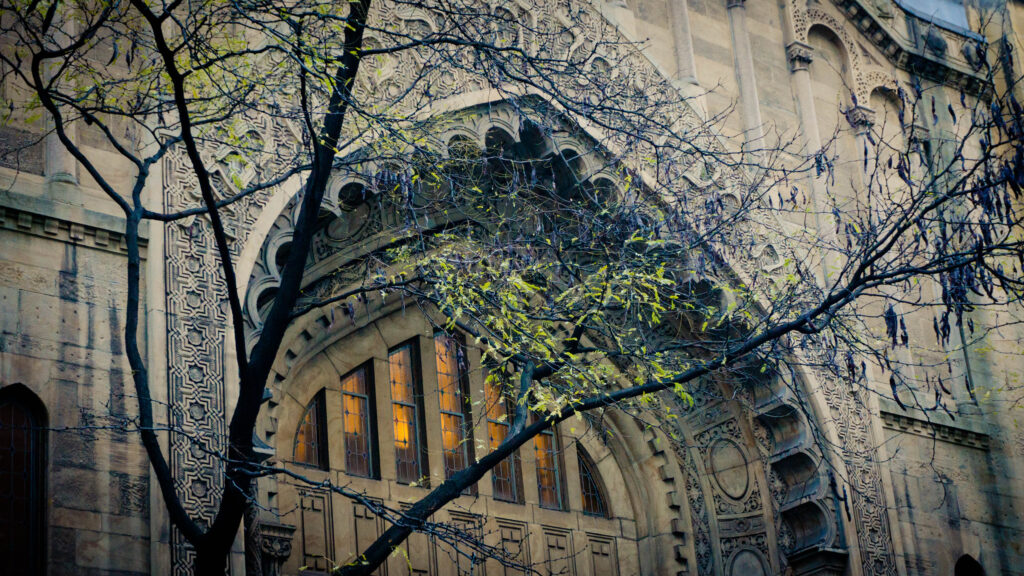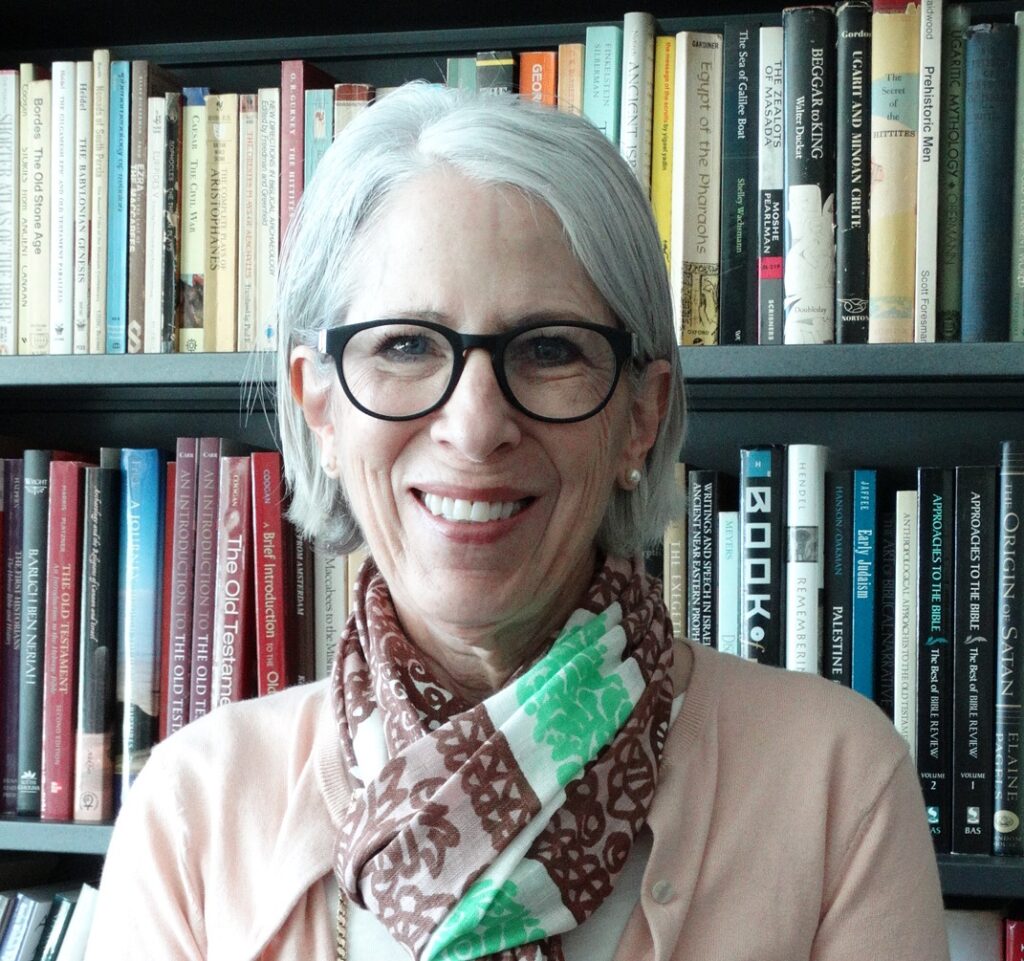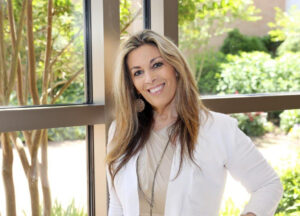Family
Feature
Childhood Abuse, Adult Reckoning

For almost 40 years, three sisters sought to bring to justice the man who had molested them as children growing up in New York in the 1950s and 60s. The man was David Putterman, their great-uncle—and, later, their step-grandfather—who had been cantor of the prestigious Park Avenue Synagogue, a Conservative congregation in Manhattan, and a luminary in the cantorial world.
Soon after his death in 1979, the sisters spoke of the sexual abuse with one another, their parents and their grandmother for the first time. Family members contacted Park Avenue officials to apprise them of the alleged misconduct, Beth Alpert Nakhai, the oldest sister, recalls. Abbe Alpert, the middle sister, called the Cantors Assembly, the professional organization of Conservative cantors. The organizations did nothing, nor did they have the mechanisms in place then to deal with such allegations.
“Every five years, I would get in a rage and I would call the C.A.,” says Alpert, now 66. In talking to Hadassah Magazine, both she and Nakhai are speaking out publicly about their experiences for the first time. “I really suffered for many years, and I was angry about that. It felt unnecessary. My uncle was somewhat of a celebrity in his day, and the hypocrisy really bothered me.”
The Harvey Weinstein sexual abuse scandal, which led to the birth of the #MeToo movement in the fall of 2017, gave Alpert the impetus to try once more. Her aim was not only to “remove honor” from Putterman’s legacy, she says, but also to motivate the cantors’ organization to increase awareness of sexual abuse and harassment and educate its members on how to address allegations of sexual misconduct in their communities. In December 2017, she found a champion in Alisa Pomerantz-Boro, then the newly invested—and only the second female—president of the Cantors Assembly and hazzan of Congregation Beth El in Voorhees, N.J.
The assembly conducted a yearlong investigation, which substantiated the sisters’ claims. As a result, the organization eliminated all praise of Putterman’s work from its publications and website. It also removed his name from its lifetime achievement award. After the Cantors Assembly’s legal representative, Morris Garten, contacted Park Avenue and the H.L. Miller Cantorial School at the Jewish Theological Seminary, both institutions took similar actions. Today, Park Avenue’s website simply lists Putterman’s name and the years he served as cantor (1933 to 1976).
“We couldn’t have been more overwhelmed and moved” by the responses, says Nakhai, 69, a Hadassah life member, Near East archaeologist and associate professor in the Arizona Center for Judaic Studies at the University of Arizona in Tucson.
Putterman’s fall from grace is similar, most recently, to that of Sheldon Zimmerman, senior rabbi of Central Synagogue, a prominent Reform congregation in Manhattan, from 1972 to 1985. Zimmerman is also a former president of Hebrew Union College-Jewish Institute of Religion, the Reform rabbinical college. In a detailed and lengthy letter to the Central Synagogue congregation dated April 27, Senior Rabbi Angela Buchdahl, synagogue president Jeremy Fielding and executive director Marcia Caban disclosed that beginning last fall, they received allegations of “sexually predatory behavior” dating back decades by three women, including one who was underage when the misconduct began.
READ MORE: Navigating the Fallout From Sexual Harassment Claims in Synagogues
The claims have been investigated by legal counsel and found to be credible, and the board has determined that “it is unacceptable for Rabbi Zimmerman’s tenure to continue to be lauded as part of the Central Synagogue story.” The letter added that congregational leaders would “examine how we currently present Rabbi Zimmerman on our website, in our archives, and in our physical buildings, and we will make necessary adjustments.”
One day after the Central Synagogue letter went out, leaders of Temple Emanu-El in Dallas wrote to their congregants that Zimmerman had been fired from his position as scholar in residence at the Dallas temple, where he had also served as senior rabbi from 1985 to 1996. Zimmerman could not be reached
for comment.
In handling the Putterman case, the Cantors Assembly protected the family’s privacy, and according to its confidentiality rules, at no time revealed the sisters’ names. “We wanted to go about our lives without being the story,” says Nakhai. But when she read Hadassah Magazine’s March/April 2021 issue, which detailed the divisiveness and lack of transparency over claims of sexual harassment in synagogues, she wrote a letter to the editor about her and her sisters’ experience. “I wanted to focus not on the sad story of what happened to us as children but to highlight the ‘happy ending,’ ” Nakhai says. “It’s taken me 50 years to get to this point.”

In her letter to the magazine, Nakhai described the legendary role Putterman played in developing hazzanut in the United States. He was instrumental in founding the Cantors Assembly and the Cantors Institute, now the H.L. Miller school. As cantor at Park Avenue Synagogue, he commissioned musical scores for Erev Shabbat services from such renowned composers as Leonard Bernstein and Kurt Weill.
“People had never taken other sides of him seriously. They didn’t want to learn about the evil underbelly of that person,” says Nakhai, who is also working to eliminate harassment and abuse in her field of archaeology. A forthcoming volume about ethics for the American Society of Overseas Research, an organization that fosters research, archaeological excavations and scholarship of Near Eastern cultures, will address the status of women and will include a brief description of her experience with Putterman.
The three sisters spent their formative years in and out of Putterman’s home. In 1959, he had married the sisters’ grandmother, Rea Cohen Racoosin Putterman, after their spouses, who had been siblings, died. Nakhai and her sisters, who grew up in Larchmont, N.Y., often visited their grandmother, a Hadassah life member, in Manhattan for Shabbat, attending services at Park Avenue and spending the night.
In the 1950s and ‘60s, “we had no vocabulary to deal with the molestation,” says Nakhai, who recalls being abused in early adolescence, probably during the time Putterman was training her for her bat mitzvah, which took place in Larchmont. Alpert recalls the abuse beginning when she was as young as 3 or 4 years old and continuing for about five years. Their youngest sister was also abused. The siblings chose not to comment on the specifics of the abuse.
Alpert says the experience deeply impacted her Judaism and confused her as a child. She recalls watching Putterman during services at Park Avenue: “He would stand in this beautiful synagogue in his white robes with silver embroidery on Yom Kippur and talk about being a messenger to God. There was something about that that was cruel and traumatic for me. I felt God was in the story and somehow God had sanctioned the abuse.” As an adult, she says, “there was so much about Judaism I loved but I couldn’t be in synagogues without having traumatic responses. I would cry and get overwhelmed by memories. It took a lot of years of therapy and hard work on my part to struggle out of the depression and confusion.”

When Alpert reached out to Pomerantz-Boro, the Cantors Assembly president responded immediately, following the organization’s clear protocol for allegations of ethics violations, which had been updated in May 2017. “I have always believed in supporting the vulnerable,” Pomerantz-Boro says. “We all must advocate for those whose voices have been silenced or have not been heard.”
In keeping with the organization’s Code of Professional Conduct, Pomerantz-Boro forwarded the email Alpert had sent with her allegations to the Cantors Assembly’s ethics committee. A subcommittee created to pursue the issue hired an outside lawyer, who interviewed Nakhai and Alpert (the third sister was not interviewed because of health problems) and determined that the claims were substantiated. The conclusions of the yearlong investigation were affirmed by the assembly’s executive council. Pomerantz-Boro apprised the group’s 600 members of the developments in a confidential email in November 2018. She shared with Hadassah Magazine the following statement from the letter: “We know these actions may be of little consolation to his victims, but it is important that we recognize the harm this man inflicted and not perpetuate a false impression of his righteousness and character.”
Nakhai later contacted Mitchell Bard, the director of the Jewish Virtual Library, and asked him to insert an update to Putterman’s biography. He did, including the above quote from Pomerantz-Boro’s letter.
At Park Avenue, synagogue board chair Marc Becker and president Natalie Barth sent a letter to the congregation’s 1,700 member families on November 28, 2018, affirming zero tolerance for misconduct. They added that there was no allegation that Putterman had behaved wrongly with any member or staff of the congregation and described the synagogue as a “sacred community that treasures kavod (respect) and menschlekeit (decency toward others).” The synagogue, they wrote, “reached out to the family members to express empathy and regret for what happened and to acknowledge their courage.” The congregation also deleted the traditional acronym z”l, for “zichrono livracha”—may his memory be for a blessing—in a reference to Putterman in a sermon posted on the synagogue’s website that Rabbi Elliot Cosgrove had delivered in 2014.
For its part, the cantorial school contacted students who were at JTS when Putterman taught there from the 1940s to the 1960s to inform them about the developments, and it also ensured that no future prizes or awards would include his name, according to a JTS spokesperson. “We take seriously our legal and ethical responsibilities to provide a campus environment that is respectful, welcoming and safe, and are proud of our comprehensive policies addressing misconduct in any form. We also remain committed to addressing any older allegations of abuse that are brought to our attention,” the spokesperson wrote in an email to Hadassah Magazine.
The case, meanwhile, prompted Pomerantz-Boro to initiate anti-harassment training by bringing rabbi-therapist Dr. Laura Gold to the Cantors Assembly’s annual conventions in 2018 and 2019. Every new member of the executive council must now undergo “sensitivity training” that includes anti-harassment training. Pomerantz-Boro says she received “lots of kudos, especially from female members. They felt their voices were heard in a way they weren’t before.”
Alpert says the “astonishing” and vindicating actions of the organizations involved have decreased her trauma in synagogue spaces. She now participates in social justice activities at Kerem Shalom in Concord, Mass. Although she always attended Yom Kippur services, now “the pain and memories are gone.”
Meanwhile, her sister Nakhai says that a weight has been lifted off her shoulders. “I felt personally responsible that this might happen to other children. People who have access to young people will know there are consequences. That opens some doors for safety.”
In pursuing the case, Pomerantz-Boro says she was just following the protocols of the Cantors Assembly professional standards, but Nakhai insists she will forever be her hero. “What Alisa did was pay attention. Just that,” says Nakhai. “It wasn’t just lip service. It was real action. She changed our lives, and she changed a culture.”
Rahel Musleah leads “NamaStay at Home,” virtual tours of Jewish India and other cultural events (www.explorejewishindia.com).
Editor’s Note: Sisters Beth Alpert Nakhai and Abbe Alpert respond to the outpouring of support they have received since their story of surviving childhood sexual abuse first appeared on our website:
“We have been heartened—and strengthened—by the many expressions of support that we have received from our family and friends, from professional colleagues and from strangers, in the weeks since the online publication of the Hadassah Magazine article. Some people of different faiths have, whether publicly or privately, shared their own stories of clerical abuse and of the response (or lack thereof) by those institutions that they have contacted. We have not found it easy to have our private story now situated in public view. Even so, our personal discomfort is mitigated by our belief that continued activism can effect positive change.”










 Facebook
Facebook Instagram
Instagram Twitter
Twitter
Shari Rosemblat says
It’s about time
Please women of someone touches you inappropriately SPEAK OUT
Stop the perpetrator from hurting others
Rabbi Goldie Milgram says
Thank you for adding your voice to those of us who have spoken out over the years. Synagogues have an ethical obligation to learn how to listen to those affected and stop perpetrators. There’s even one perpetrator that still has synagogues named after him and his photo enshrined on the synagogue wall.
Janice Taitel says
This is so instructive for how these cases can and should be handled. Pomerantz-Boro really is a hero. She said she was just following the Code of Professional Conduct, but too often, in other organizations, these codes aren’t followed, or their existence is held up to cover up a lack of action. It’s so sad that the sisters had to wait so long for the eventual response, but hopefully others will learn from this and see that organizations are made stronger by dealing with abuse rather than hiding it.
Chester Gittleman says
I studied at the Park Avenue Synagogue Hebrew School, where I had my Bar Mitzvah in 1966. Cantor Putterman was one of my teachers. He was cruel, almost sadistic. I vividly remember him telling another boy, “What do you think this is – a Bar Mitzvah factory? You’re not getting Bar Mitzvah-ed.” To which the boy understandably responded by bursting out in tears; he probably envisioned himself flunking out and shaming his family. (Which didn’t happen.) But Putterman’s cruelty remains a clear memory for me 56 years later.
Beth Alpert Nakhai says
Mr. Gittleman,
I am so sorry that you and your friend had this horrendous experience. It does not surprise me, but of course it greatly saddens me. Thank you for sharing your memory with all of us.
Beth Nakhai
Dr Donald Bachman says
I recently reminisced with old friends about preparing for Bar Mitzvah at Park Avenue Synagogue in 1957. Lofty Cantor Putterman relegated this task to an elderly immigrant assistant, David Friedman. Cantor Friedman surrounded us with warmth, affection and kindness. When we fell short, his exhortation “More effort , boyiss” was as severe as he ever got. We would walk from services to his apartment on Broadway and 86 th Street for Shabbat lunch and conversation.. He made us feel like family and we all were devoted to him. Rabbi Judah Nadich and Cantor Putterman had great stage presence but Cantor Friedman had menschlikeit.
D bachman says
Correction, my bar mitzvah was in 1957.
Todd L. Platek, Esq. says
I was bar mitzvah-ed at PAS in 11/1965 and David Putterman was a bit severe and aloof. I recall closing my haftorah volume on the bima after practicing and then being scolded to never close a prayer book until the cantor concluded his session. My mother had been a congregant at PAS for 30 years by that time and a close friend of David’s first wife, Amy, of whom she spoke in glowing terms, and she also taught Sunday School there. She had no particularly warm things to say of him and their relationship appeared distant. (She idolized Rabbi Milton Steinberg.) A junior Cantor Dank, on the other hand, was fabulously compassionate in his dealings with us students and thorough in his preparation of our learning.
I am distressed to learn of these matters of abuse and wish healthy recovery to the injured.